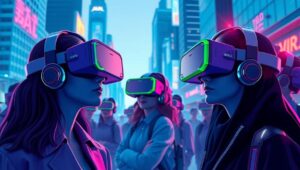Decentralized Computing: Web3 and Beyond (Post-2025 Architectures)
Decentralized Computing: Web3 and Beyond (Post-2025 Architectures) Decentralized computing is poised to revolutionize the digital landscape. As we move beyond 2025, the architectures underpinning Web3 and other decentralized systems are becoming increasingly sophisticated. This article explores the key concepts, emerging trends, and potential future directions of decentralized computing architectures. What is Decentralized Computing? Decentralized computing involves distributing computational tasks across multiple nodes or devices, rather than relying on a centralized server. This approach enhances security, transparency, and resilience while reducing dependency on single points of failure. Web3, the next evolution of the internet, heavily relies on decentralized computing principles. Key












